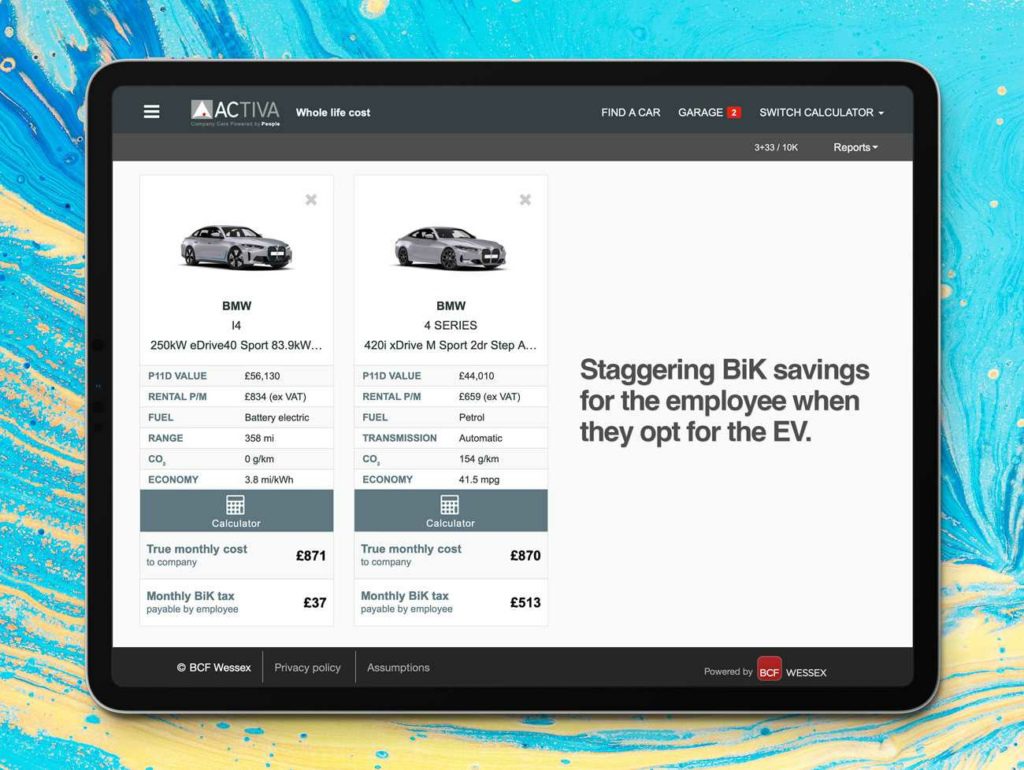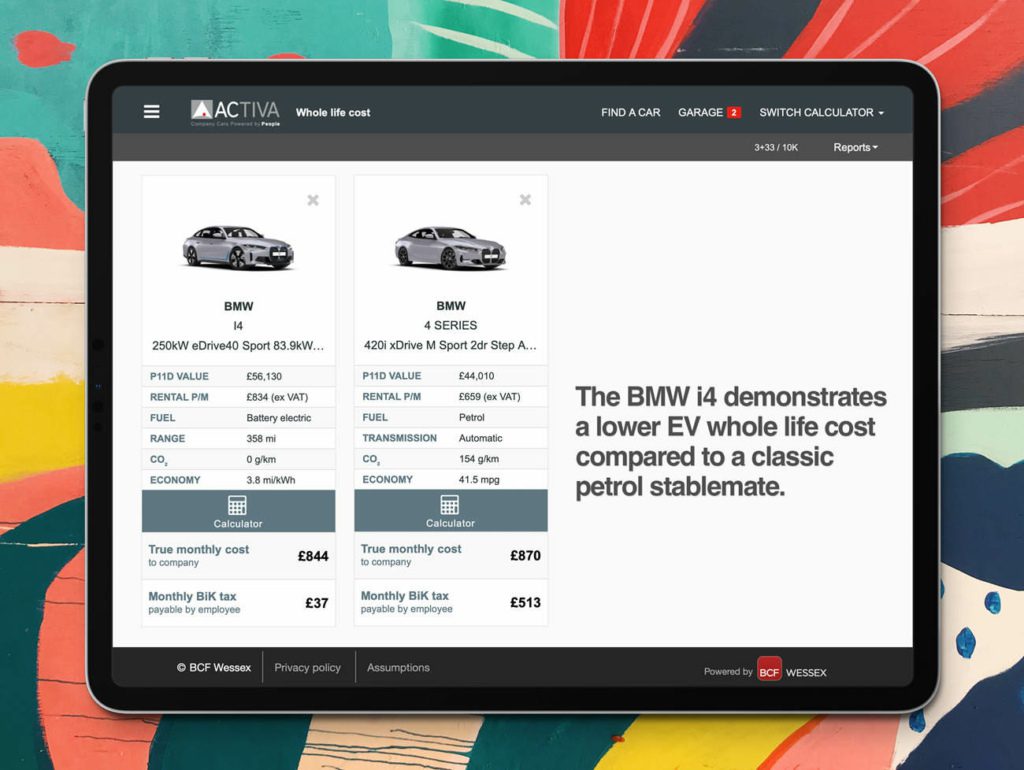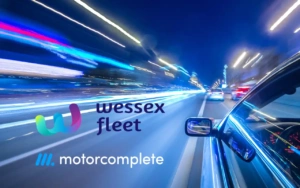
IN A word, no.
Compounded by the revolving door in Downing Street, the state of the UK’s economy has been pretty dire, with inflation at a 50 year high, and interest rates climbing steadily, writes Rhys Whitcombe of BCF Wessex (left).
But, as we all appreciate, one of the major issues faced by the public at large is the increase in their gas and electricity bills, which have now risen so much the UK pays more than any other country.
Therefore, you might think that electric cars should be less attractive to drive, especially when recent research carried out by the RAC found that the cost of charging at public rapid chargers has risen by around 50% in the last eight months, to an average cost of 70p per kWh.
With articles being published in the Glasgow Herald, and The Sun, to name just a couple of prominent media outlets, is there a campaign to deter people away from EVs? And if so, should we listen?
The answer is a definite no – although brokers are likely to meet some resistance from both business users and consumers considering the switch to electric cars from such adverse media comment.
There’s no question that electricity prices have increased dramatically since 2021, with no immediate indication they will fall to even semi-normal levels. But the price to charge an electric car at home remains vastly cheaper than running an ICE (Internal Combustion Engine) vehicle.
Charging at a public rapid charger is now broadly equal, on a pence per mile rate, to using petrol or diesel, but according to one of the leading charge providers, PodPoint, the average rate to charge at home is less than half that of the public chargers, while charging overnight when electricity is cheapest works out roughly eight times cheaper than using a public rapid charger.
While ultra rapid charging has become expensive, charging at home is what most drivers do
While some articles have focused on the cost of public charging, it’s interesting to note that an article published in the Daily Express earlier this month estimated that 92% of all charges are done at home. It used data from the EV charging payment solutions provider Mina’s EV Report – Autumn 2022, which was harvested from actual user data.
In reality this means that an overwhelming majority of electric cars are significantly cheaper to “fill up” than a petrol or diesel car.
So using that percentage, and assuming that workplace charging may account for a significant proportion of the 8% of charging not undertaken at home, EVs appear even more attractive because employers can provide electricity to their employees free of charge while they’re at work; the government doesn’t consider electricity to be a fuel, therefore, no tax charge will arise for a company providing electricity to its employees.
Of course, there will be instances when a driver must use a public rapid charger at a service station on a motorway for example, and it will undoubtedly cost them more money.
By the same token, we all know that petrol and diesel sold at a service station costs significantly more than fuel sold at more accessible petrol stations.
So are the RAC’s findings cause for concern? Is it really a fair comparison or has the media taken the figures out of context and exaggerated the findings?
Whatever you think let’s look at a true comparison which paints a clearer picture.
Comparing Whole Life Costs to understand the true cost of fuelling EVs and ICE cars
Using the Gensen suite of car cost calculators, we have compared the Whole Life Costs of a petrol BMW 4 Series against its sister EV, the BMW i4, using a cost of electricity of 70 p/kWh.
In this comparison the company car driver is using mostly public rapid chargers to fuel their EV.
The results help disprove the narrative that EVs are too expensive to run.
The cars cost roughly the same for the company, despite the P11d of the i4 being £12,000 more than its petrol counterpart, and a staggering £476 cheaper in BiK tax per month for the driver.
The calculations were completed assuming 10,000 miles per annum, with 5,000 of those being business miles, and assuming a £1.56/litre of petrol.

We also ran another calculation using an electricity cost of 34p/kWh, which is the average cost of a standard home tariff (excluding overnight costs); the Whole Life Costs of the i4 are now less than its petrol equivalent, meaning the company would also save roughly £26 per month.

There will be exceptions to the rule of course
Some people, for example, simply cannot have a charger installed at home, and they will have a requirement to use public charging more extensively, which will increase the expense on electricity.
But these cases will be outliers, rather than typical, and perhaps those are the people who should potentially consider a PHEV as an alternative.
Electric cars remain the future for both business users and consumers.
If the government is serious about its deadline, with new petrol and diesel car sales axed from 2030, and its pledge that the UK will become “net zero” it needs as many EVs on the road as possible; our true comparison shows that even during the cost of living crisis, record breaking high inflation, and seemingly continuous uncertainty, electric cars are still the way forward and should generate savings for both employees and employers.
For more help with EV running costs
Contact BCF Wessex: 07585 322779 | info@bcfwessex.co.uk

Select Fleet Solutions – Eton celebrates 25 years
Select Fleet Solutions – Eton Office, formerly Benchmark Leasing, is celebrating 25 years in the leasing broker sector

Wessex Fleet chooses MotorComplete broker platform for ARs
Wessex Fleet has selected the MotorComplete broker platform to provide websites for the Wessex Appointed Representatives (ARs)

New executive appointments in the fleet and leasing broker sector
There have been a raft of new appointments in the fleet and leasing broker sector, including the appointment of Ian Jeffery at PHVC

Broker News Awards 2024 in pictures
The Broker News Awards 2024 took place at the Orrery in London’s Marylebone. Here are the pictures to remember the event

Broker of the Year 2024 winner profile: Synergy Car Leasing
Synergy Car Leasing was voted Broker of the Year 2024 by the judging panel – here’s the winner’s profile supported by Leasing.com

Broker News Awards 2024 – the winners
The Broker News Awards 2024 – supported by Fleet Procure – produced outstanding winners, with Synergy taking the Broker of the Year title





